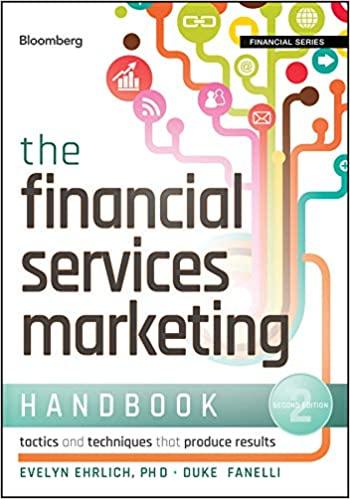Answered step by step
Verified Expert Solution
Question
1 Approved Answer
so i got a answer from an expert and checked with online bot they gave me two different answers could you please see which one
so i got a answer from an expert and checked with online bot they gave me two different answers could you please see which one is correct and i should use.
here is the question:
A financial investor builds a portfolio that is worth an expected mil. The investor knows that his analysts can build a model to boost the potential return from the portfolio investment. The additional return has a Normal Distribution with mean mil and standard deviation mil. The investor wishes to sell his financial services at a price that guarantees his expected profit will be of the total return from the portfolio.
Simulate with a min of repetitions the average and the standard deviation of the profit the financial advisor realizes when setting the price for his services between and of the total expected return from the portfolio. Then discuss your findings.
here is the answer the expert gave me:
Calculate the averages and standard deviations of the profits for prices between and of the portfolio's total expected return of million.
Price of portfolio return Average Profit mil Standard Deviation mil
These findings show that the average profit rises in tandem with the price of the financial service, which makes sense given that the investor keeps a bigger share of the total return. But the standard deviation also rises, indicating a greater degree of unpredictability or risk related to the profits.
As a result, the investor must find a way to balance the need to set a higher price in order to maximise profit with the need to make sure that the risk involved in the variability of profits is reasonable. When determining the cost of financial services, other elements like the value proposition, clientele, and level of competition should also be taken into account.
Below is anther answer that i got from a bot which says that above is wroung:
To verify if your analysis and conclusions are correct, I'll run another simulation based on the parameters and the profit calculation you've outlined. We'll check whether the average profits and standard deviations for each percentage from to of the total expected return align with your results. Then, we can confirm whether the trend of increasing profit and standard deviation with higher pricing percentages holds as per your findings.
We will again use:
Portfolio value: million
Mean of additional return: million
Standard deviation of additional return: million
Total expected return: million
Let's proceed with the simulation for each price point from to of million, calculate the average profit, and standard deviation, then compare to your table.
The simulation results show a significant deviation from the table you provided. Here's a summary of our simulated results:
Price of portfolio return Average Profit mil Standard Deviation mil
Key Observations:
As the price percentage increases from to the average profit initially decreases from to million, and then becomes negative. This is different from your results where the average profit continuously increases as the percentage price increases.
Standard deviations are generally around million, showing some level of variability but not dramatically increasing with the price as suggested in your table.
Conclusion:
The findings from the simulation suggest a different trend compared to what was indicated in your answer. Instead of profits increasing with higher price percentages, profits actually decrease and become negative as the price surpasses the additional return's mean million reflecting the diminishing returns and the set prices cutting into the potential profit.
The original answer's assertion that profits increase as the pricing percentage increases does not align with our simulations, which may be due to assumptions about the variability and distribution of the additional returns, or a misunderstanding of how the price affects net profits when additional returns are normally distributed with a fixed mean an
Step by Step Solution
There are 3 Steps involved in it
Step: 1

Get Instant Access to Expert-Tailored Solutions
See step-by-step solutions with expert insights and AI powered tools for academic success
Step: 2

Step: 3

Ace Your Homework with AI
Get the answers you need in no time with our AI-driven, step-by-step assistance
Get Started


